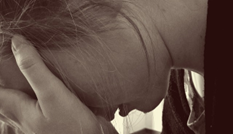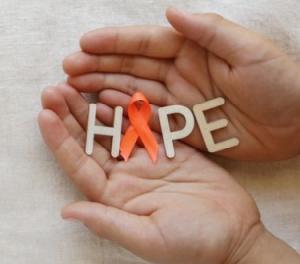Self-Harm
What is Self Harm? 
Self-Harm is when you hurt yourself on purpose. You usually do it because something else feels wrong, you do it to let those feelings out. It is very common behavior in young people and affects one in 12 people with 10% 15 – 16 years olds self-harming.
If you self harm it is usually the result of another problem; it can happen if you are feeling anxious, depressed, stressed, bullied and feel that you don’t have any other way of dealing with these issues. Sometimes it feels like no one understands why you self-harm but lots more people today know about what the condition really means.
Some reasons why young people self-harm:
- express something that is hard to put into words
- turn invisible thoughts or feelings into something visible
- change emotional pain into physical pain
- reduce overwhelming emotional feelings or thoughts
- have a sense of being in control
- escape traumatic memories
- have something in life that they can rely on
- punish yourself for your feelings and experiences
- stop feeling numb, disconnected or dissociated
- create a reason to physically care for themselves
- express suicidal feelings and thoughts without taking their own life
Ways of self-harming can include:
- cutting yourself
- poisoning yourself
- over-eating or under-eating
- biting yourself
- picking or scratching at your skin
- burning your skin
- inserting objects into your body
- hitting yourself or walls
- overdosing
- exercising excessively
- pulling your hair
- getting into fights where you know you will get hurt
After you Self-Harm
- After self-harming you may feel a short-term sense of release, but the cause of your distress is unlikely to have gone away. Self-harm can also bring up very difficult emotions and could make you feel worse
- Even though there are always reasons underneath someone hurting themselves, it is important to know that self-harm does carry risks. Once you have started to depend on self-harm, it can take a long time to stop
What can you do about Self-Harm?
- Talk to someone you can trust, a parent, carer, relative, close friend or a teacher
- If you do not feel that you can talk to anyone close to you then speak to your GP
- Why speak to your GP? Self-Harm can be a sign of other disorders that you may need help with such as anxiety or depression and your GP can refer you to the right people.
- You may also be referred to child and adolescent mental health services (CAMHS) so you can have an assessment for the right treatment for you. This does not have to be referred by your GP, you can self refer into the CAMHS service.
Things to consider when asking for help
Remember that whoever is supporting you is there to help you and listen to you. Sometimes a therapist or practitioner may ask you to commit to not self-harm during a course of treatment. It is important that you don’t feel pressured into making decisions about this, and that anything you decide is realistic for you at the time.
It can be tempting to try to cover up the extent of your self-harm, or to lie about it altogether. While this is understandable, if you are able to share your experience it can make a big difference to how you feel. It can help to reduce feelings of shame and isolation, and will increase the chance of you receiving the support you need. It does take a lot of courage to reach out, and it might take more than one conversation to say everything that you’d like to say.
What support and treatments are available to you?
- GP, your GP may assess you and let you know what treatment is available. they can prescribe medication for anxiety and depression, or help with sleeping.
- Your GP may make a referral to Children and Adults Mental Health service (known as CAMHS). This service can offer you psychiatrists, psychologists, occupational therapist and community psychiatric nurses depending on what treatment is suited to you. You can also self refer to this service. For more information see here
- Talking Treatments; talking with a professional therapist trained to listen with empathy and acceptance.
- Support Groups, regular meetings with others who have similar experiences as you.
- On line support, a support option if you don’t feel ready to see someone face to face.
- Treatment for scars
Treating your injuries and covering scars:
- You may well need treatment quickly for injuries from self-harming. Any injuries you have should be treated straight away and not left because you harmed yourself
- If your injuries are serious you must attend Accident and Emergency at your nearest hospital
- Treatments are available for covering and reducing scars for more information see here
If you know someone who is self-harming:
There are lots of things you can do to make a difference to someone you know who self-harms. Your attitude and how you relate to them is one of the key things that can help them feel supported. Here are some things to keep in mind:
- Try to be non-judgemental.
- Let the person know that you are there for them.
- Relate to them as a whole person, not just their self-harm.
- Try to have empathy and understanding about what they are doing.
- Let them be in control of their decisions.
- Offer to help them find support (see Useful contacts).
- Remind them of their positive qualities and things they do well.
- Try to have honest communication, where you take responsibility for any fears you have.
Supporting someone who is self-harming can be a long process with many ups and downs. Taking care of yourself will enable you to stay involved for longer and to keep well. See How to cope when supporting someone else for more information.
Helpful things to put in place are:
- having clear boundaries about how much and what sort of support you can offer
- finding out what other support is available
- getting support and information for yourself – Young Minds offers support for parents, and Sane and Self-injury Support run support services for people concerned about someone else’s mental health. You may find it helpful to try a talking treatment if you are finding things difficult.
A Young Person’s Story
Useful Contacts and Sources of Information:
You can contact many organisations for help and advice here
ChildLine find out more information here
The Samaritans find out more information here
Young Minds find out more information here
NSPCC find out more information here
Respect Yourself find out more information here
CAMHS find out more here
Self-Harm Awareness Day 1st March every year to raise awareness and understanding of self-harm.
 Find out more information here
Find out more information here
